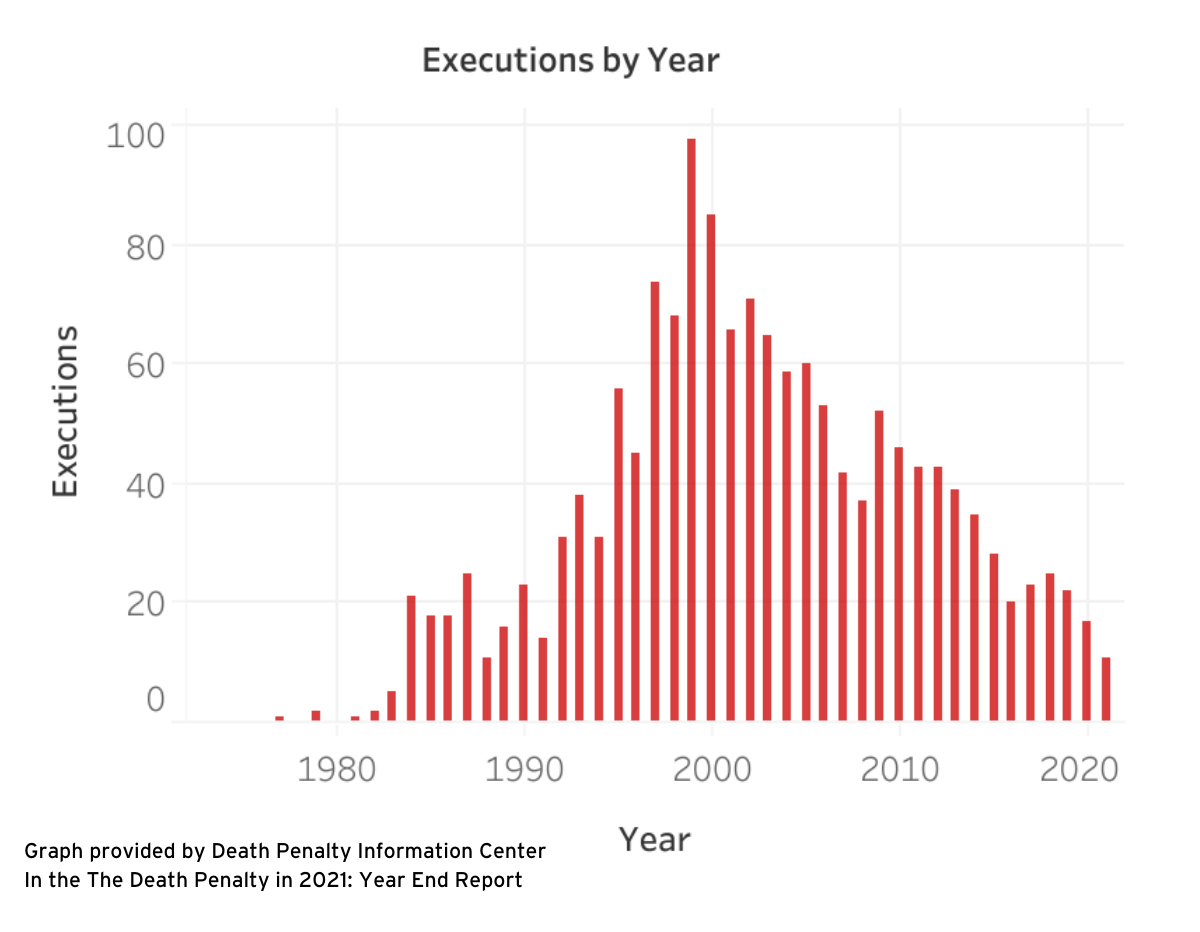
The more things change, the more they stay the same.
The past two decades have brought a steady, state-by-state dismantling of the death penalty, and 2021 proved no different. We saw the first former Confederate state repeal the death penalty when Virgina Governor George Northam signed the state’s new law into the books. That stroke of the pen ended an awful legacy for the commonwealth. Up to that point Virginia had executed more people than any state in the nation.
Meanwhile, two reliably conservative states — Ohio and Utah — took significant steps to repealing their death penalty, some of the strongest signs yet of this being a bipartisan movement. Coupled with this year’s Gallup poll, which showed the lowest approval of the death penalty since the 1970s, and it’s clear Americans’ support is eroding.
The consistency of the death penalty works in good and bad ways. Perhaps nothing is as damning of capital punishment as the fact that it consistently targets the most vulnerable — and not the “worst of the worst” as so many advocates for execution would have you believe. All but one of the people executed across 2021 suffered from chronic childhood trauma, mental illness, or some form of brain disability.
As a society, we failed them…twice. First, we didn’t give them the support they needed when they needed it most, when they had been harmed or carried some immense burden. Then, when our failure manifested in their violence, we punished them in the most ruthless way imaginable, without recognizing our own culpability.
This aspect of the death penalty process will not change, which is why we must end the practice everywhere.
And we will. That brings us to the flip side of steady nature of capital punishment.
The death penalty is dying, once again documented by our allies at the Death Penalty Information Center. The 11 executions carried out this year were the lowest total since the 1980s. New death sentences totaled just 18, a tie with 2020 for the lowest since 1976. Twenty-six states currently don’t have a functioning death penalty, either through repeal (23) or moratorium (3).
This year, the cases of Julius Jones and Pervis Payne brought an especially glaring light on the corruption of the death penalty system. There is abundant evidence of Jones’s innocence. Millions of people rallied to prevent his execution, barely. Payne, who also has strong claims of innocence, was spared because of his intellectual disabilities.
This year brought us much to celebrate, but we had higher expectations. The federal execution spree ended with the beginning of the Biden-Harris administration, an immense relief. But we are waiting for the president to take further action. In his campaign, he made it clear he opposed the death penalty. Now is the time to stand behind those words and clear the federal death row and support abolition legislation in Congress.
We will aim for these goals and more in 2022 as we take our next steps toward being a nation free of the death penalty.



